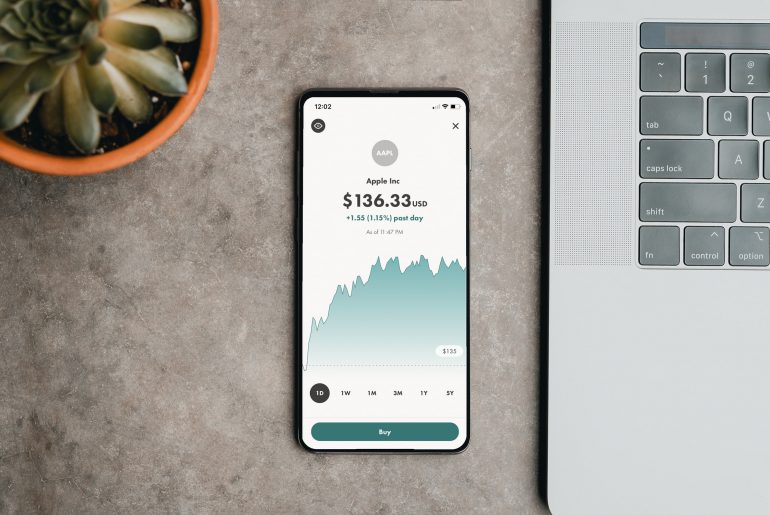This article may contain references to products or services from one or more of our advertisers or partners. We may receive compensation when you click on links to those products or services. Nonetheless, our opinions are our own.
The information presented in this article is accurate to the best of our knowledge at the time of publication. However, information is subject to change, and no guarantees are made about the continued accuracy or completeness of this content after its publication date.

Updated by Albert Fang
Options trading is known for being one of the more complicated forms of investing that you can do. While most people have a general understanding of the stock market — where each share allows you to buy a small percentage of a company, which increases or decreases in value as the company itself becomes more or less valuable — options are a bit more complicated.
In this article, we’re going to discuss everything you should know if you’re looking at trading options for the first time. This includes explaining what options are, whether beginners should try them, what you need to begin trading them, and more.
- What Are Options?
- What Kinds of Options Are Available?
- Can Beginners Do Options Trading?
- Can You Trade Options on Mobile?
- How Do You Start Learning Options Trading?
- How Much Money Do You Need to Trade Options?
- Are Options Gambling?
- When Are the Advantages and Disadvantages of Options?
- Can You Trade Options After Hours?
- Is Options Trading Right for You?
- Recommended Reads
What Are Options?
Options are contracts that allow you to buy or sell an asset as negotiated with the institution selling the contract.
It’s important to note that not all options are traded on stocks. However, for the purposes of this article, we’ll stick with options based on stocks, since these are the ones that new traders are most likely to be familiar with, and thus most likely to purchase.
American Options vs. European Options
You can learn more about American and European trading at “Pocket Option“.
They’re called “options” because they’re not mandatory. Instead, you have the option to buy or sell an asset at a price determined in the contract. That said, it’s important to know whether you’re investing in American-style or European-style options.
While American-style options allow you to buy or sell the asset at any point in time before the option expires, European-style options only allow you to do so once, when the contract is expiring.
What Kinds of Options Are Available?
There are many different kinds of options that a trader can invest in, but the two most common kinds are call options and put options.
Call Options
Call options allow a buyer to purchase an asset at a price that’s agreed upon at the time of the contract. A trader has to pay a premium (i.e., a certain amount of money for the privilege of the option) in order to have access to this privilege.
A buyer can never lose more than the value of the premium, which goes a long way toward explaining why some investors turn to options to reduce risk.
Put Options
Put options allow a trader to sell an asset at a price that’s agreed upon at the time of the contract. This is useful if the trader is buying an asset and wants to minimize the downside as much as possible.
Traders buy an asset at a normal price, while the put option acts as an insurance policy, ensuring that the trader can cash out for a certain monetary value indicated by the terms negotiated during purchase of the options.
Essentially, if you buy an asset that plummets in value, a put option allows you to recoup a certain amount of the cost. That said, you do have to purchase a premium, and you’re likely to still lose some money because the put will almost never be the same value as the asset you’re purchasing.
Can Beginners Do Options Trading?
Options are more complex than stocks. If you’re not comfortable with the ideas behind the stock market, options aren’t for you. That said, you don’t need to spend decades in the stock market before starting to trade options.
Once you understand the basic principles, options can give you the power to make moves on the stock market that you would otherwise not be able to. This is especially important during periods of stagnation, when you don’t feel comfortable predicting whether stocks will go up or down.
That said, while options can be accessible with a bit of research, it’s important to note that they’re not quite as accessible as the general stock market. You need to make sure you’ve found an institution you trust to sell you the option. You also need to understand the options you’re purchasing.
Options Trading Levels
If you’re worried about trading options as a beginner, it’s important to note that there are four levels of options trading that a broker can assign to a trader. These refer to the level of complexity an options trade requires.
Traders not yet confident in their skills may therefore choose to stick with Level 1 options trading before trying the more complicated strategies.
Can You Trade Options on Mobile?
Just like you can invest in stocks on your phone or tablet, you can also trade options. Some people find options trading easier on desktop, and you’ll need to make sure that your financial institution of choice has a suitable mobile interface. That said, it’s absolutely possible.
Voted "Best Overall Budgeting App" by Forbes and WSJ
Monarch Money helps you budget, track spending, set goals, and plan your financial future—all in one app.
Get 50% OFF your first year with code MONARCHVIP
How Do You Start Learning Options Trading?
Much like learning to buy stocks, there are several actions you can take before getting into options trading. The two most common are to take classes or find a mentor. Either way, it’s a good idea to ensure you’re confident in your judgment before trading options.
There are many classes you can take, some of which even allow you to practice what you’re learning with simulated markets. This way, you can understand how good you are at options trading before actually committing your money.
How Much Money Do You Need to Trade Options?
There are several factors which influence how much money you need to trade options. Generally, although options provide you with more power for less money, it’s still important to ensure that you have enough money to pay for the premium, as well as the asset you’d like to purchase or sell.
Most financial professionals advise a minimum of $5,000-$10,000.
Are Options Gambling?
No, trading options is not the same thing as gambling. This comparison is a rhetorical flourish, more than it’s based in fact. While it’s easy to get burned while trading options, you have more power over the kinds of options you can trade, which means you can figure out ways to reduce your risk.
That said, there are certain kinds of options which work on very short timeframes. For instance, while monthly options are contracts that expire within a month, weekly options only give you a week to call the contract.
While these options can be useful for extremely short-term traders, who are able to get better deals on the options because of the limited power they provide, they also rely on minute fluctuations more than market or business fundamentals. Therefore, their risk is closer to gambling’s than monthly options.
When Are the Advantages and Disadvantages of Options?
Before trading options, it’s important to consider some of the biggest advantages and disadvantages influencing how options perform for investors.
Advantages
Options essentially magnify the control you have over a group of shares. You can set them up in ways that mitigate your risk. They also allow you to make more money than you would if you’d just invested in shares of the stock.
They’re good if you’re doing thorough research on a company, and you’re looking for a way to take advantage of that information.
Do you understand the business’s peak seasons and downtimes? Do you think you understand the stock’s volatility?
In some scenarios, options allow you to take better advantage of this knowledge than if you’d just bought a stock.
Disadvantages
It is important to understand what you’re doing when trading options. While it’s possible to enter the stock market as a new trader and try a long-term growth strategy by buying well-known stocks, options require a bit more finessing.
This is why many people choose to take classes before trading options. Some investors also choose to turn to a professional trader, who has a deep understanding of the state of the market, the specific companies they’re buying options of, and the day-to-day shifts you can’t be expected to keep up with.
Can You Trade Options After Hours?
Yes. Just like stocks, you can trade options after hours. Options trading runs until 6:00 p.m. Eastern Standard Time for the Nasdaq and New York Stock Exchange
Is Options Trading Right for You?
Ultimately, options tend to be better for short-term traders than long-term traders, since you’re setting a specific time limit on the amount of time you have to call or put the option.
They’re a good choice when you’re unsure whether the stock market’s going to go up or down, or you’re unable to find stocks that are moving reliably like you would expect in a bull or bear market.
Because options trading can be complex, it’s a good idea to be cautious. Only start investing in options once you’ve found ones that you’re comfortable with and you feel confident in your decision-making ability.
Only you can state with 100% certainty whether options trading is a good fit for your investment goals and appetite for financial risk.
What If Options Aren’t Right for You?
If you don’t think options are right for you, there are of course many other paths you can take to secure your financial future. We recommend checking out some TED Talks about personal finance, which can help you better understand where you are and where you want to be.

Reviewed and edited by Albert Fang.
See a typo or want to suggest an edit/revision to the content? Use the contact us form to provide feedback.
At FangWallet, we value editorial integrity and open collaboration in curating quality content for readers to enjoy. Much appreciated for the assist.
Did you like our article and find it insightful? We encourage sharing the article link with family and friends to benefit as well - better yet, sharing on social media. Thank you for the support! 🍉
Article Title: The Basics of Options Trading: Everything You Need to Know
https://fangwallet.com/2022/03/10/the-basics-of-options-trading-everything-you-need-to-know/The FangWallet Promise
FangWallet is an editorially independent resource - founded on breaking down challenging financial concepts for anyone to understand since 2014. While we adhere to editorial integrity, note that this post may contain references to products from our partners.
The FangWallet promise is always to have your best interest in mind and be transparent and honest about the financial picture.
Become an Insider

Subscribe to get a free daily budget planner printable to help get your money on track!
Make passive money the right way. No spam.
Editorial Disclaimer: The editorial content on this page is not provided by any of the companies mentioned. The opinions expressed here are the author's alone.
The content of this website is for informational purposes only and does not represent investment advice, or an offer or solicitation to buy or sell any security, investment, or product. Investors are encouraged to do their own due diligence, and, if necessary, consult professional advising before making any investment decisions. Investing involves a high degree of risk, and financial losses may occur including the potential loss of principal.
Source Citation References:
+ Inspo












































